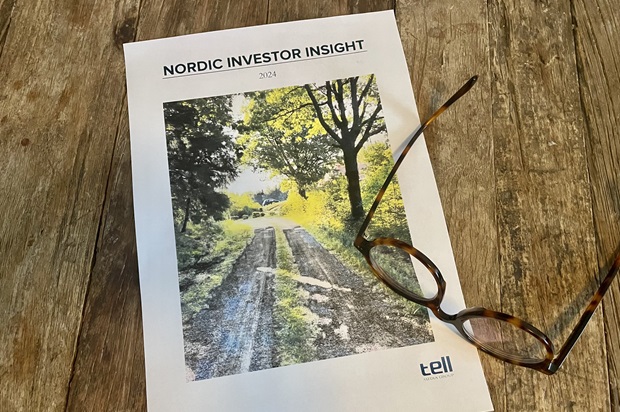
Peter Lundgreen: “The sales side will need to re-invent themselves”
The CEO of the Danish consultancy Lundgreen’s Capital talks about the digital revolution’s implications for asset management business and why it is a challenge for non-domestic investors to find reasonable deals in Danish mortgage bonds.
Andrew McAfee, co-director of the MIT Initiative, famously said: “The world is one big data problem.” One of the people contemplating this problem is Peter Lundgreen, CEO of Lundgreen’s Capital, one of Denmark’s largest independent advisory firms working in the public sector. With several decades of experience under his belt, Peter Lundgreen has been a keen observer of the digital evolution within the financial industry and a firm believer that Mifid II was just a beginning to the digital race.
“How fast and to what extent asset managers will choose to integrate new technologies will determine the winners and losers of the future,” Peter Lundgreen says.
One area of business he believes will be revolutionised by technology will be the distribution side. Peter Lundgreen sees that the growing cost-pressure and the rise of AI will put the sales people under pressure in the future. “The sales side will need to re-invent themselves. The distribution side will go through some profound changes in the coming years that will render it to a very different type of an animal it is today,” he says.
Growing up in the countryside, Peter Lundgreen describes how he first got bitten by the financial bug. “I grew up in the countryside where financial newspapers were hard to come by. However, every now and then I managed to purchase one from one of the largest town nearby where I lived. I was completely fascinated by all the prices on commodities, securities, and foreign exchange rates from all over the world that were quoted in the newspaper,” he explains.
Moving from the countryside to the city, Peter Lundgreen took up his first position on the trading floor to work with foreign exchange trading and sales at a time when the trading floor was a busy place dominated by men in white collared shirts. “So much has changed from those times. Back then, you would get this feeling that something big was about to go down from the energy and momentum on the floor. Now that same happens digitally. You can observe these changes for instance in the trading curve as the price is fluctuating and you know something big might potentially be happening. It’s a whole different world now,” he describes.
Today, Peter Lundgreen leads a Danish consultancy advising both professional and retail clients. Popular especially on the public side, Lundgreen’s Capital has acted as an advisor in several sizeable mandates over the years, most recently for the City of Copenhagen as it tendered USD 1.5 billion (EUR 1.3 billion) mandate, consisting of bonds and equities, earlier this year. Peter Lundgreen says the journey from the trading floor to the advisory role has been long and eventful but that every experience along the way has given him new insights into the financial world. “I have learnt to be comfortable and stay mentally balanced, despite the high expectations and pressure it generates by taking the lead and being responsible for giving projects the final push in order to reach the goals,” he says.
He also notes that his professional engagements in China and The Philippines over the years have given him inspiration and new insights. “During my entire career, it has been a pleasure working with many nationalities as it enriches not only the work life but also life in general. For me, this also has led to developing a humble respect, but not anxiety, for the global competition as the world just has so many talented people. It does, however, keep one fit to be a part of the game,” he laughs.
Recently, Lundgreen’s Capital has embarked on a mission to pave way for giving international investors better access to Danish mortgage bonds, which have traditionally been an attractive alternative to Danish government bonds due to their higher yield, high liquidity and low capital charge. Last year an average Danish mortgage portfolio retuned +0,4 pct. Although the spreads and yield look low in average terms, Peter Lundgreen says that Danish mortgage bonds have attracted a lot of interest from investors in countries with negative interest rates. However, he notes that it can be hard for a foreign investor to find deals that match those offered to Danish investors saying he has often observed that foreign investors pay a higher price for getting the portfolio managed compared to Danish investors. The firm is therefore now focusing at the price for the management of a Danish mortgage portfolio. “Because we’re so big in RFP / tenders on behalf of clients, we have a deep insight in the price structure,” he explains.
Danish mortgage bonds are issued by specialised mortgage credit institutions with an S&P AAA rating that retain the credit risk on the loans but pass the interest rate and prepayment risk onto the bond holders. Peter Lundgreen and his team are now in the process of setting up a service that connects international players, interested in buying Danish mortgage bonds, with domestic managers that can offer them with competitive prices. He says: “At the moment, we’re looking at getting international players access to the same deals as the Danish investors are getting on those mortgage bond spreads. After all, we would like to see more of them on the market and welcome the competition.”



